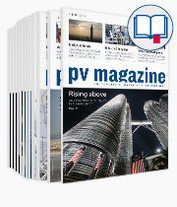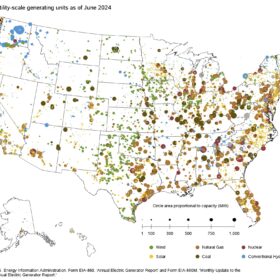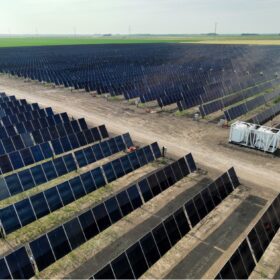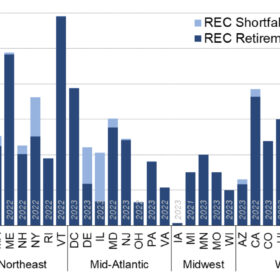Researchers at the National Renewable Energy Laboratory (NREL) studied the local health and air quality benefits of achieving 100% renewable energy generation in Los Angeles’ transport and electricity sector.
The Los Angeles 100% Renewable Energy study (LA100) explored how different approaches to achieving carbon neutrality affected air quality and health outcomes in Los Angeles over time. The researchers used 2012 as a baseline year compared to health and air quality outcomes across four adoption scenarios by 2045.
Results showed that each scenario explored could reduce citywide air pollutant emissions like oxides of nitrogen (NOx) and fine particulate matter (PM2.5).
The most significant reductions in emissions resulted from electrification and infrastructural changes to the non-power sector, such as transportation, buildings, the Port of Los Angeles, and the Port of Long Beach. This is due to reduced air pollutant emissions that led to citywide reductions of PM2.5 concentration.
However, researchers state that reductions also led to an increase in ozone concentration in certain parts of Los Angeles, which they attribute to “temporary but inevitable growing pains” the city will experience as it works toward ozone reductions.
“Once NOx emissions get sufficiently low, further emission decreases will lead to marked ozone reductions,” the researchers stated.
The study found that health outcomes reflected air quality changes. For example, in one scenario, researchers state that 96 premature deaths and 53 cardiovascular-related hospital admissions were avoided. However, there was an increase of 30 asthma-related emergency room visits resulting from the rise in ozone concentrations.
NREL said a health outcomes focused scenario translates to about $900 million in yearly monetized health benefits for the City of Los Angeles. The figure exceeded $4 billion when adding the monetized health benefits of neighboring counties.
NREL conducted a follow-up study, LA100: The Los Angeles 100% Renewable Energy Study and Equity Strategies, to assess how air pollution affects different demographic groups. They focused on heavy-duty transportation electrification as a tool to reduce air pollutant emissions, concentrations and health effects. They found that electrifying large trucks could help to reduce air quality-related health disparities as many members of disadvantaged communities in Los Angeles live near major highways.
This content is protected by copyright and may not be reused. If you want to cooperate with us and would like to reuse some of our content, please contact: editors@pv-magazine.com.








By submitting this form you agree to pv magazine using your data for the purposes of publishing your comment.
Your personal data will only be disclosed or otherwise transmitted to third parties for the purposes of spam filtering or if this is necessary for technical maintenance of the website. Any other transfer to third parties will not take place unless this is justified on the basis of applicable data protection regulations or if pv magazine is legally obliged to do so.
You may revoke this consent at any time with effect for the future, in which case your personal data will be deleted immediately. Otherwise, your data will be deleted if pv magazine has processed your request or the purpose of data storage is fulfilled.
Further information on data privacy can be found in our Data Protection Policy.